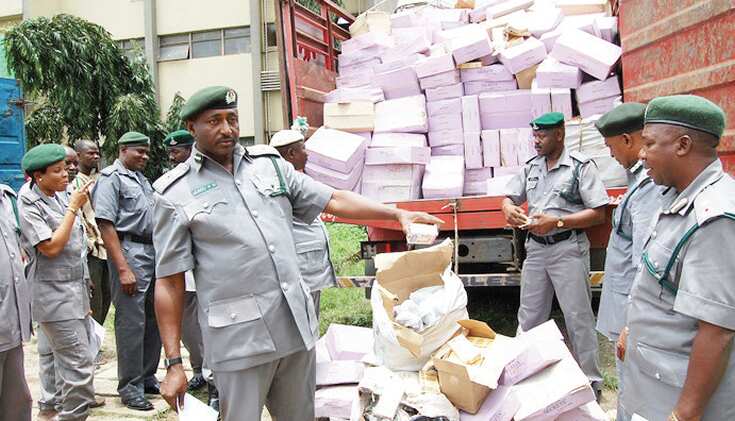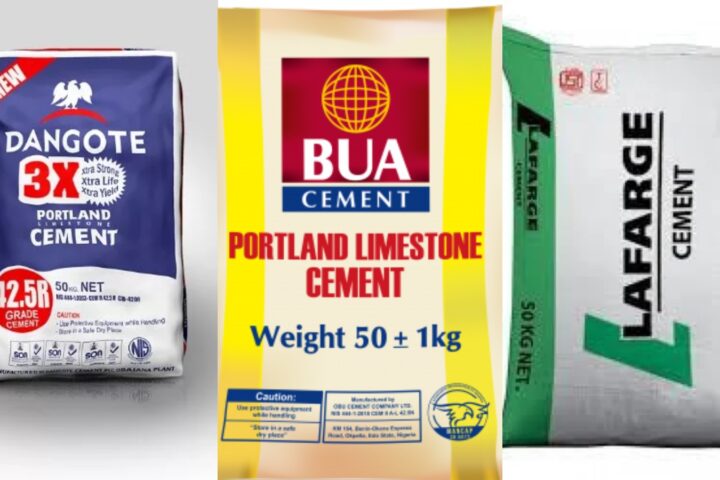The Central Bank of Nigeria (CBN) has increased the rates for computing Customs duties at ports for the sixth time in 2024 making it rise by 59.1 per cent since December 2023, Prime Business Africa’s findings reveal.
This is as the value of the local currency, the naira, continues to depreciate both at the official and parallel markets.
Join our WhatsApp ChannelData obtained from the official trade portal of the Nigeria Customs Service on Thursday, 15 February 2024 rate has increased to N1,515.092/$ from N952/$ in December 2023. This is an increase of N563.092 (59.1 percent).
READ ALSO: Customs Comptroller Vows To Clear Cargoes Within 24 Hours As Tincan Port Generates N7.6bn One Day
On Wednesday, 14 February 2024, the rate displayed on the portal was N1,481.482/$. The upward adjustment on Thursday, represents a 2.3 percent increase in the Customs duty rate and an increase of N33.61 per dollar.
Other foreign currencies displayed on the customs portal on Thursday include British Pound – N1,911.894/£, Euro – N1,631.754/€, Swiss Franc – N1,728.176/CHF, Canadian Dollar – N1,125.04/CAD.
With this increase of rates which is the sixth time in 2024, it means that importers will have to pay more to clear their goods from the nation’s ports as import duties are determined based on the value of naira against dollar and other hard currencies.
The rate has been on an upward swing since the unification of the exchange rate windows and floatation of the naira in the foreign exchange market was done in June last year.
READ ALSO: Naira Trades Above N1,500/$1 Amid CBN’s Forex Market Reforms
Soon after the floatation, the CBN on 24 June 2023 adjusted the exchange rate for Customs duty from N422.30/$ to N589/$, and on July 6, 2023, it was further adjusted to N770.88/$1. On 14 November 2023, the apex bank again reviewed the rates, raising it to N783.174/$1, and in December 2023, it was raised to N952/$1.
In 2024, it was raised from N952/ $1 to N1,356.883/$1 on 2 February 2024, and was again reviewed upward on 3 February to N1,413.62/$1. The rate went up again to N1,417.635/$1 on Saturday, 10 February, N1,444.56/$1 on Monday, 12 February, and N1,481.482/$ on Wednesday, 14 February before the latest increase.
Commenting on this, a clearing agent at Apapa Port who didn’t want to be named, said the fall in value of naira leading to a high exchange rate never recorded before has really taken a toll on businesses that depend on imports. He said Customs wants to maintain an exchange rate that is similar with the official rate for clearing of goods because of their increased drive for revenue collection.
He lamented that such an increase happening in quick succession, is affecting importers and manufacturers who depend on imported materials for production.
Speaking on the implication of the rate hike, an economist and lecturer at the Niger Delta University (NDU), Dr Ebikabowei Aduku, observed that because Nigeria depends heavily on imports, any increase of the Customs exchange rate for cargo clearance means an increase in the cost of importation and would result in price increases, which Nigerians would have to bear.
Aduku stated that with the current state of the economy it is not the right time for the government to increase Customs duty in such a manner, adding that it would further push up inflation rate thereby worsening the economic condition of the people.
The Development Economics scholar maintained that high cost of importation would discourage many importers leading to scarcity and higher costs as there is low domestic production in the country.
“This increase means an increase in cost of importation and that would mean price increase to cover up the cost. Those that are importing will also want to make profit because the cost must be transferred to the consumers,” Aduku told Prime Business Africa in a chat.
“So, increasing the price at this time the country is already battling with high inflation is really not a good one as it would definitely push up the inflation rate,” he stated.
Continuing, he pointed out that “the increase will discourage importation and of course, our production is not enough for the consumption. We complement the consumption demand with the imports. So, discouraging imports through the hike of import duties will mean shortage of products and when products are in short supply, it means price will increase further because of high demand more than supply.”
Victor Ezeja is a passionate journalist with seven years of experience writing on economy, politics and energy. He holds a Master's degree in Mass Communication.

















Follow Us